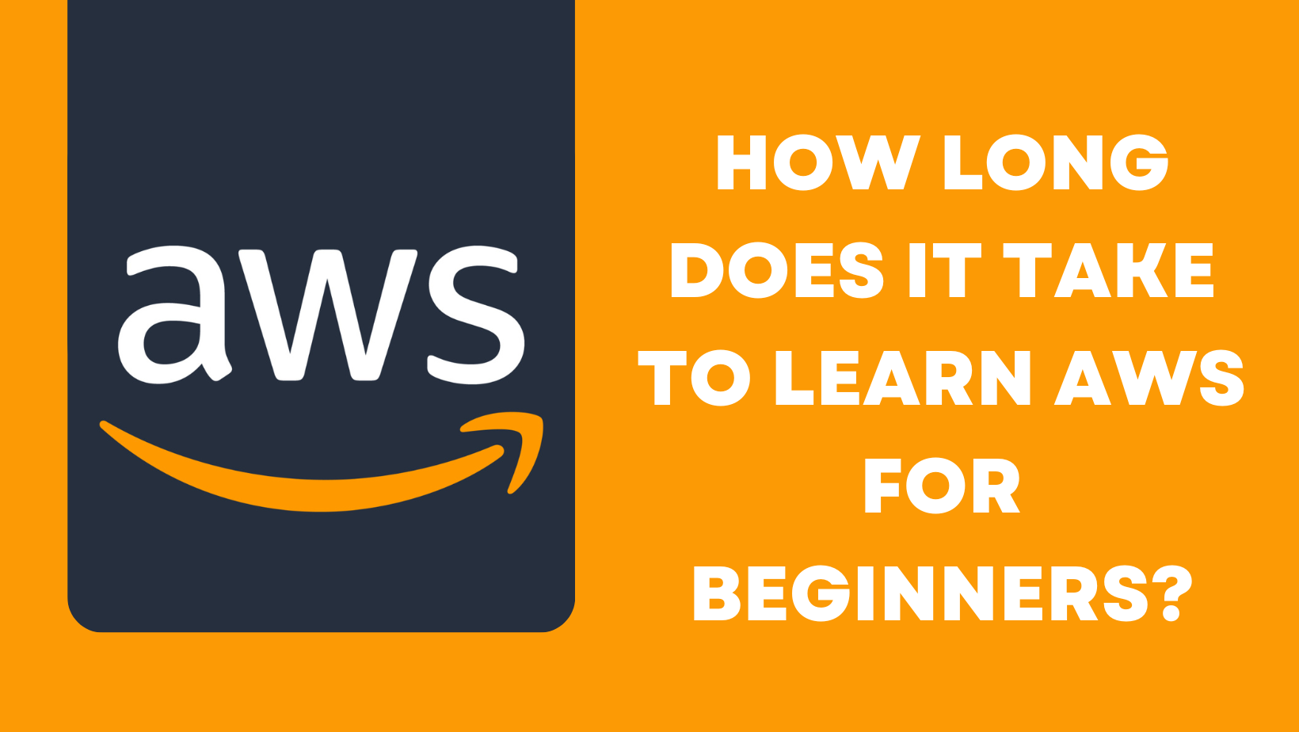How long does it take to learn AWS for beginners?

Learning Amazon Web Services (AWS) takes different amounts of time for everyone - there's no one-size-fits-all answer. But if you're wondering how long you'll need to invest before you can confidently handle AWS, let's look at it in manageable chunks. Whether you're aiming to switch careers or add cloud skills to your tech toolkit, understanding the timeline helps set realistic expectations for your study path.
The Basic Foundation: 1-3 Months
Recommended Cert: AWS Certified Cloud Practitioner
Your first steps into AWS begin with grasping the core services and concepts. Most beginners need about 1-3 months to get comfortable with the fundamentals, spending around 10-15 hours per week studying. During this time, you'll become familiar with essential services like EC2 (virtual servers), S3 (storage), and IAM (security management). You'll master the AWS Management Console, set up your first instances, and handle basic configurations. This period creates the building blocks for everything you'll learn later.
Many newcomers find that hands-on practice makes the biggest difference during these initial months. The AWS Free Tier is ideal for this - it lets you test various services without worrying about costs. You might make mistakes (everyone does), but these experiences add valuable knowledge. It's similar to getting behind the wheel - you start in empty parking lots before tackling busy streets.
Building Real-World Skills: 3-6 Months
Recommended Certs (depending on which area you want to focus on):
- AWS Certified Solutions Architect – Associate
- AWS Certified Developer – Associate
- AWS Certified SysOps Administrator – Associate
After getting comfortable with the basics, the next phase typically takes another 3-6 months. This is when you'll start using more complex services and architectures. You'll begin understanding how different AWS services fit together, work with networking through VPC (Virtual Private Cloud), and learn about databases like RDS and DynamoDB. During this time, you might also start preparing for your first AWS certification, usually the AWS Cloud Practitioner.
This period is when things really start making sense. You'll see patterns in how cloud solutions are built and understand why certain services get picked over others. You'll begin to spot how everything connects. Many learners at this stage create small projects, which helps cement their understanding and gives practical experience to discuss in job interviews.
Advanced Concepts and Specialization: 6-12 Months
Recommended Certs (depending on which area you want to focus on):
- AWS Certified Solutions Architect – Professional
- AWS Certified DevOps Engineer – Professional
The path to becoming truly skilled in AWS typically takes 6-12 months of focused learning and practice. During this time, you'll likely zero in on specific areas that match your interests or career goals. You might specialize in solutions architecture, DevOps, security, or machine learning on AWS. This is also when many people go for advanced certifications like the Solutions Architect Associate or Developer Associate.
What makes this phase particularly valuable is how you'll grasp the broader scope of cloud computing. You'll master cost management, security best practices, and high-availability architectures. You'll also become better at fixing problems and creating smart solutions. The skills you gain here aren't just theoretical - they're the practical expertise that employers want.
Factors That Affect Learning Speed
Several things can influence how quickly you pick up AWS. Your background in IT plays a big role - if you're already familiar with concepts like networking, Linux, and programming, you'll likely catch on faster. Someone with no technical background might need extra time to learn these foundational skills alongside AWS.
Your learning style also matters. Some people advance faster with structured online courses, while others thrive through project-based experience. Having a mentor or being part of a study group can make learning faster by offering guidance and support. The amount of time you can put into learning also counts - someone studying full-time will naturally move ahead faster than someone learning in their spare time after work.
Making the Most of Your Learning Time
The secret to learning AWS well isn't just about how much time you spend - it's about how you use that time. Create a consistent study schedule, even if it's just a few hours each week. Mix theory with hands-on practice. Make projects that interest you and fix real problems. Join AWS community forums and add to discussions - teaching concepts to others helps lock in your own understanding.
Keep in mind that learning AWS is an ongoing process. Even seasoned professionals constantly update their knowledge as AWS adds new services and features. The timeline mentioned here gets you to a point of professional capability, but you'll always keep learning. That's what makes cloud computing such an exciting field - it keeps offering new ways to grow your skills.
Stay patient with yourself as you learn. Some concepts might click instantly, while others take more time to sink in. What counts most is steady improvement and putting what you learn into practice. With dedication and consistent effort, you can build solid AWS skills that create new career opportunities in cloud computing.
This story is tagged under...
AWS Cloud Practitioner CLF-C02 AWS Certified Developer Associate DVA-C02 AWS Certified Solutions Architect Associate SAA-C03Interested in contributing to our blog or partnering with us? Want to share your story of how Crucial Exams helped you? Contact Us .